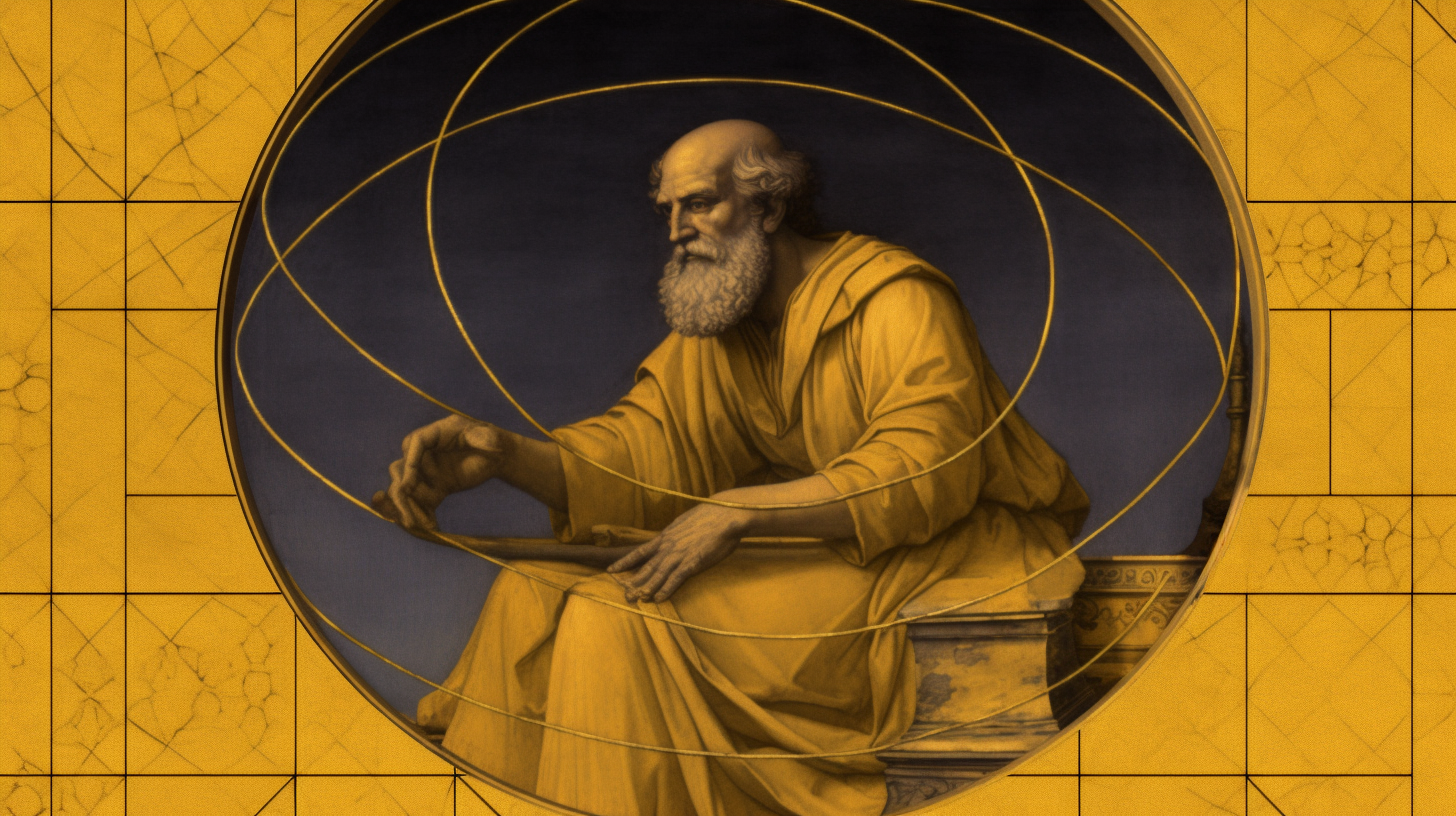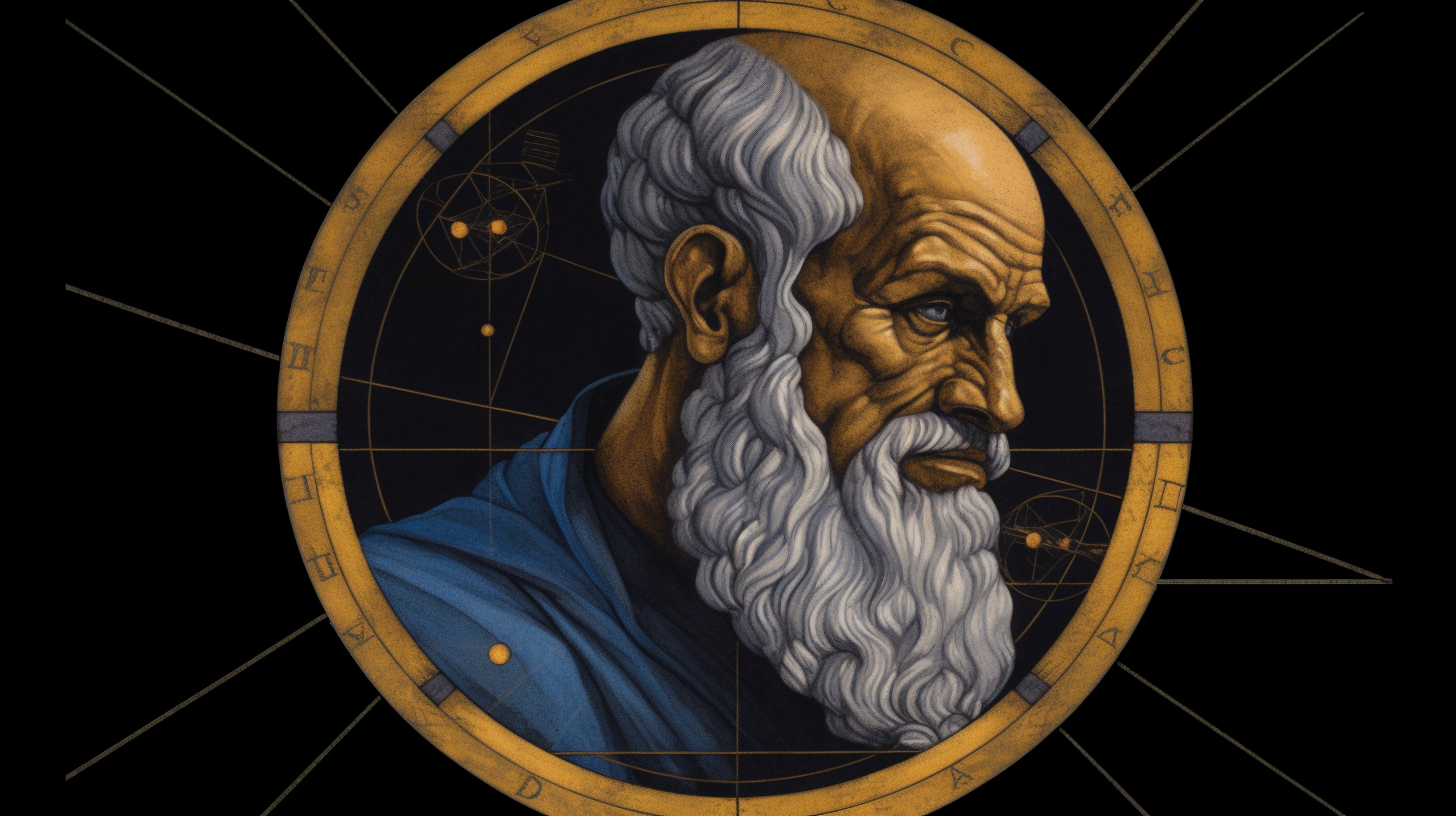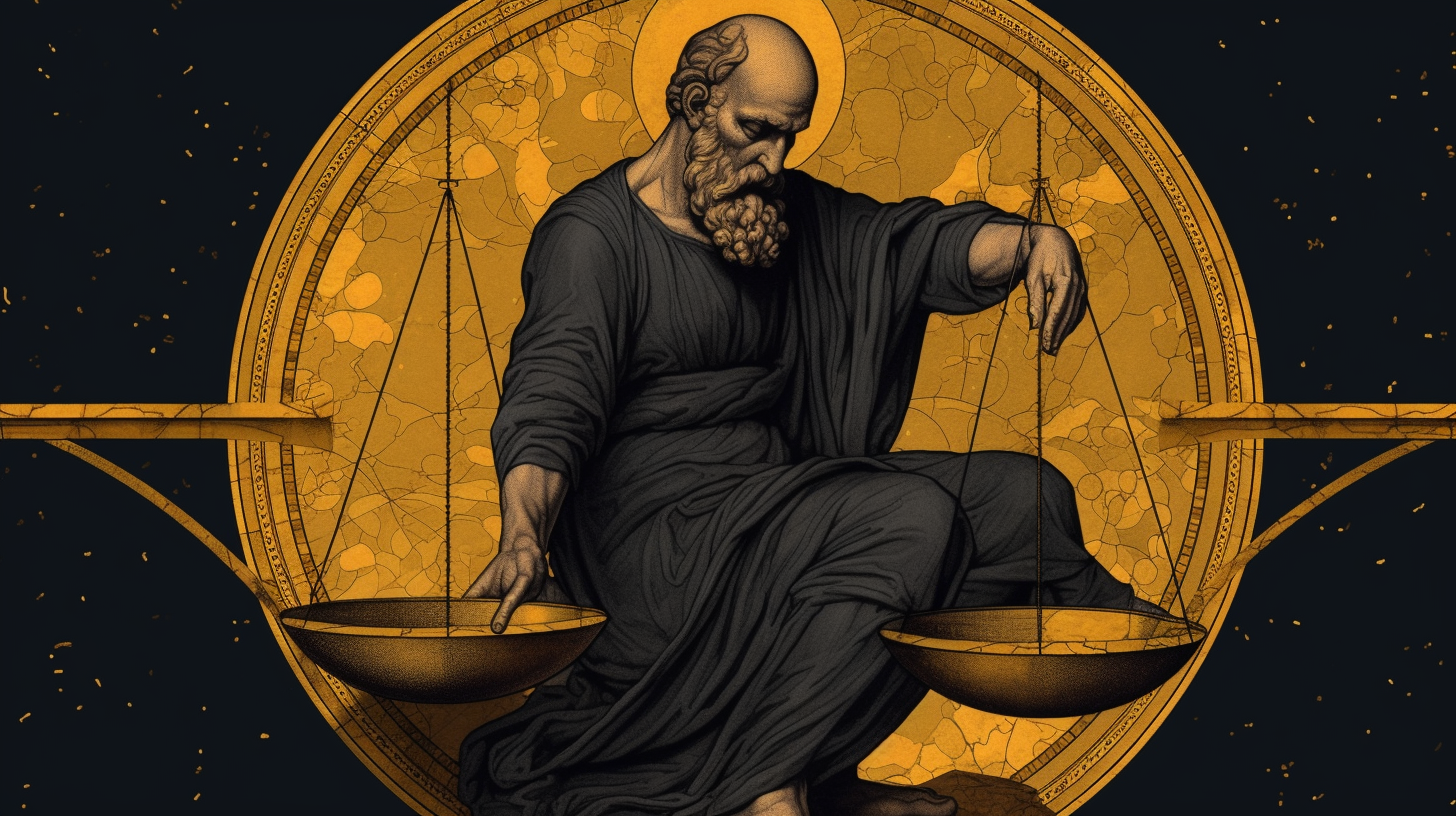Aristotle's Golden Mean: Balancing Virtues in a Complex World
The philosophical concept of the "Golden Mean" proposed by Aristotle has long been regarded as a guide to ethical behaviour and virtuous living. However, upon closer examination, it becomes apparent that this idealized notion has flaws. In this critical analysis, we shall explore the limitations of Aristotle's Golden Mean and argue that rigid adherence to this concept can be detrimental to individual and societal progress in the face of a complex and ever-changing world.

The Illusion of Balance
At its core, the Golden Mean suggests that virtue lies between extremes, advocating for a moderate approach to life's challenges. For example, Aristotle argues that courage lies between recklessness and cowardice, generosity between wastefulness and stinginess, and so on. While this may sound reasonable, it fails to consider the dynamic nature of human experiences and the intricate interplay between virtues.
Human nature is far from static, and virtues cannot be defined solely by two extremes. By insisting on a moderate stance, the Golden Mean overlooks the potential for exceptional actions that transcend the middle ground. It fails to appreciate the instances where courage demands a departure from the mean, where extraordinary generosity arises from a willingness to go beyond what is considered moderate.
The Complex Nature of Virtue
Aristotle categorizing virtues into a fixed set further limits the potential for moral growth and development. His system leaves little room for the emergence of new virtues or the evolution of existing ones in response to changing circumstances. By boxing virtues into rigid compartments, Aristotle stifles the very essence of human progress and adaptation.
Consider the virtue of justice. In Aristotle's framework, it is confined to a narrow definition centred around fairness and equity. However, justice requires a broader perspective in a complex world grappling with social inequalities, global issues, and ethical dilemmas. It necessitates grappling with distributive justice, environmental justice, and intergenerational justice questions. The Golden Mean, with its fixed virtues, fails to provide the flexibility needed to address these multifaceted challenges.
Historical Lessons
History offers numerous examples where adhering strictly to the Golden Mean has stifled progress and perpetuated injustice. The fight against slavery, for instance, required abolitionists to take a stance far beyond what was considered moderate in their time. These freedom advocates, such as Frederick Douglass and William Wilberforce, understood that true courage and justice demanded a departure from the middle ground.
Similarly, in the struggle for women's suffrage, the suffragettes who fought for equal rights understood that moderation would not suffice. Their actions, deemed radical in their time, challenged societal norms and paved the way for progress. These historical examples remind us that there are moments when virtues must be amplified, and the rigid confines of the Golden Mean must be abandoned to effect meaningful change.

The Dangers of Complacency
One of the most significant pitfalls of the Golden Mean lies in its potential to breed complacency. The emphasis on moderation can lead to a stagnant status quo, where individuals and societies settle for mediocrity. By constantly seeking the middle ground, we risk paying for a diluted version of virtue, where we are content with merely avoiding extremes rather than actively striving for excellence.
Aristotle's Golden Mean discourages the pursuit of extraordinary achievements, innovation, and groundbreaking ideas. It prevents taking risks and challenging the prevailing norms. Instead, it promotes a lukewarm existence that neither challenges nor inspires. As Christopher Hitchens aptly stated, "Mediocrity knows nothing higher than itself, but talent instantly recognizes genius."
The Need for Moral Courage
In a world of complexities and moral dilemmas, we need not
the Golden Mean but moral courage—the ability to discern the right course of action and act accordingly, even if it means departing from the middle ground. Moral courage compels individuals to stand up against injustice, challenge prevailing dogmas, and envision a better world.
With its insistence on moderation, the Golden Mean fails to address our time's challenges adequately. It does not provide the framework needed to navigate the intricate ethical landscape of a complex world. To effect meaningful change, we must embrace the discomfort of uncertainty and challenge conventional wisdom. Only by doing so can we transcend the confines of mediocrity and strive for greatness.

Conclusion
Aristotle's Golden Mean, although initially appealing, proves to be a flawed and inadequate guide for navigating the complexities of the modern world. Its rigidity limits the potential for exceptional virtues and moral growth. Yet, by challenging the conventional wisdom surrounding the Golden Mean, we open the doors to a more nuanced understanding of ethics and virtuous living.
In pursuing progress and a more just society, we must not settle for the safety of the middle ground but instead embrace moral courage. Through moral courage, we can challenge existing norms, address societal inequities, and usher in a future defined by extraordinary acts of virtue. So let us not be content with the tarnished gold of the Golden Mean but instead forge a path of moral excellence that transcends the limitations of Aristotle's concept.

Plato Re-Imagined
This course offers 32 comprehensive lectures exploring most of Plato's dialogues. These lectures guide students toward a consilient understanding of the divine—a concept that harmonizes knowledge across disciplines and resonates with secular and religious leaders. As a bonus, Lecture #33 focuses on consilience, demonstrating how different fields of knowledge can converge to form a unified understanding.






